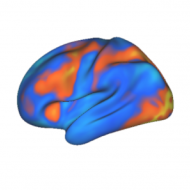 I just got back from CNS a few days ago. I thought I’d write a quick summary of one of the more interesting symposia at the conference.
I just got back from CNS a few days ago. I thought I’d write a quick summary of one of the more interesting symposia at the conference.
Taking place Monday (4/14) afternoon, The rise and fall of cognitive control: Lifespan development covered how executive brain functions develop and peak in the 20s and 30s, falling again toward the end of life.
açai
Açai do Brasil
Beneficios del açai
que es el acai
Acai Berry Best to Use Beneficios del açai – Açai do Brasil
acaidobrasil
www.acaidobrasil.top
The first talk, by Cindy Lustig, reported on a functional MRI study of 239 individuals ranging from 9 to 97 years of age. She found that the “default-network” brain activity (likely related to mind wandering) was better suppressed during difficult tasks early in life and decreased later in life. This suggests that difficulties older people have with hard tasks may originate in their poor ability to reduce background thoughts.
Adele Diamond gave the next talk, which focused on an impressive preschool program that improves cognitive control in children to help them with future school success. The program, called Tools of the Mind, is based on research showing that self-regulation (i.e., cognitive control) is very predictive of future academic success. The program successfully integrates with the children’s play, and Dr. Diamond’s research shows convincingly that it is able to improve cognitive control and subsequent school success. The above photo is of two children “playing” the program’s ‘Buddy Reading’ task, which promotes inhibition of inappropriate impulses using a reminder icon held by the child in the role of listener (on the right in the above photo).
The final talk, by Bradley Schlaggar of Washington University at St. Louis, described tracking changes in resting state connectivity with development. As presented by Steven Petersen at HBM 2007, Dr. Schlaggar showed how dorsal anterior cingulate changes its membership in networks over time. The idea of showing how regional membership in global networks can change with development is very exciting and will certainly lead to future insights into human developmental processes.
-MWCole
